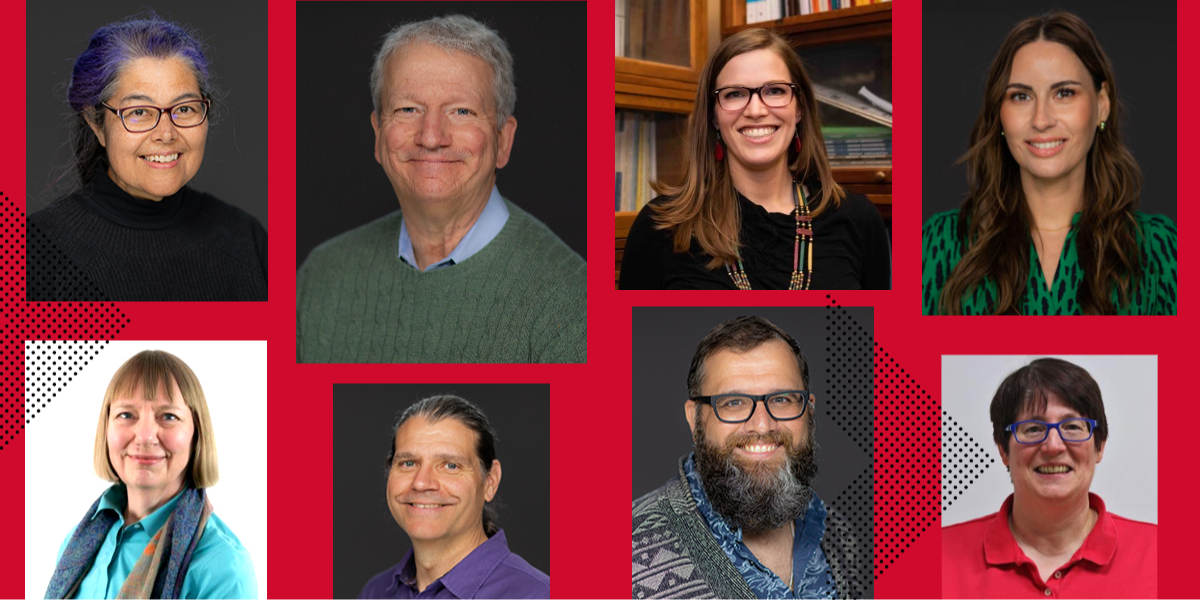Bestowed by the Provost for innovation, service, and social impact

Left to right: beth bonsignore, Carol Boston, Andrew Fellows, Bill Kules, Diana Marsh, Ron Padrón, Galina Reitz, Beth St. Jean
The University of Maryland (UMD) Do Good Institute, in partnership with the Office of the Provost, has recognized 57 incredible university staff and faculty members with the Provost’s Do Good Innovator Award. Eight awardees were recognized from the UMD College of Information Studies (INFO) for their innovation and hard work tackling the grand challenges of our time in service of the public good.
The Provost’s Do Good Innovator Awards recognize members of the campus community who create, nurture, expand, and amplify social impact through education, programs, and research, both in and outside the classroom.
These dedicated Terps were nominated by their colleagues who recognize the broad and meaningful impact they create. The award reflects their impressive commitment to our Do Good Campus core values: Experiential Learning; Social Impact; Diversity, Equity, Inclusion, and Belonging; Service to Humanity; Collaboration; and Innovation.
INFO College recipients:
beth bonsignore, Assistant Research Scientist and Director of KidsTeam
Beth is the director of KidsTeam, a world class co-design program for school-aged designers from the surrounding community. She is also actively building our computing programs for underrepresented teens. She is a prolific grant writer in support of these initiatives and is always eager to assist anyone with inclusive design methods.
Carol Boston, Community Engagement Faculty Assistant
As the INFO College’s inaugural Community Engagement Faculty Assistant, Carol has demonstrated deep commitment to DEI and the power of experiential learning. In this role, she has been working hard to lay the foundation for many deep, ongoing research partnerships in Prince George’s public schools, local municipalities, and underserved organizations.
Andrew Fellows, Faculty Specialist
Andy is a tireless advocate for the value of experiential learning. He is developing INFO’s College Park Scholars program with a focus on building local community partnerships so that first and second year students can practice a community-oriented approach that will benefit the rest of their lives and careers.
Bill Kules, Principal Lecturer
Bill is passionate about engaging students with real world problems. Central to this effort was his creation of the iConsultancy, the experiential learning hub for the College. iConsultancy recruits and manages almost 100 external client projects annually. The ability to do this at scale has had a profound and transformational impact on all of INFO’s academic programs.
Diana Marsh, Assistant Professor
Diana has connected the INFO College with local Piscataway collaborators, which has had a particularly transformative impact at all levels in our archives programs. Diana is also a leading advocate for Indigenous studies on campus, including building momentum toward a new Native American studies minor.
Ron Padrón, Director of Undergraduate Operations
Ron has driven the emergence of an inclusive student culture across the undergraduate programs offered by the INFO College. He has expertly managed the many challenges posed by running brand new undergraduate programs with a rapidly-growing student population. Above and beyond his services to the College, Ron provides campus leadership on themes of belonging for LGBTQ, neuro-divergent, disabled, and first-generation students.
Galina Reitz, Senior Lecturer and Faculty Director, BS in Information Science at Shady Grove
Galina is an innovation engine, always finding new opportunities to engage students with industry and the community to improve their educational experience and prepare them for impactful careers. She has created the AgeTech Hackathon, connecting students and older adults around technical support, as well as a STEM club for students in Montgomery County Public Schools.
Beth St. Jean, Associate Professor
Beth is student-centered in all that she does, including creating the popular Health Justice Carillon Community for students and writing her own textbook to make the intellectual foundations of information science more accessible to a broader student population. She then donated all royalties in support of student scholarships.